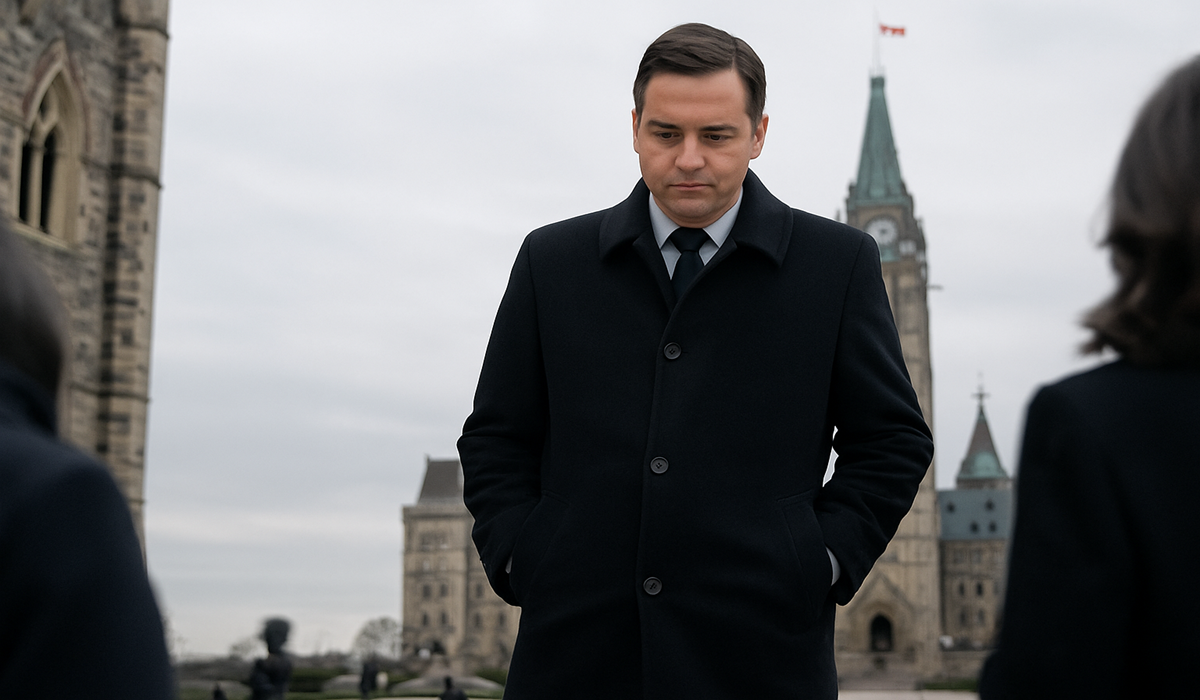Matt Jeneroux’s Resignation Signals Deepening Crisis for Conservatives
- Ingrid Jones
- Breaking News
- November 7, 2025

In a development that has sent an earthquake through Ottawa, Alberta Conservative MP Matt Jeneroux announced his resignation from the House of Commons, marking yet another setback for Pierre Poilievre’s increasingly fractured caucus. The Edmonton–Riverbend MP, who has served since 2015, stated that his decision was rooted in “family responsibilities,” but the timing—coming just days after Nova Scotia MP Chris d’Entremont crossed the floor to join the Liberals—has sparked intense speculation about growing discontent within the Conservative ranks.
Jeneroux’s resignation will take effect in the spring, leaving the Conservatives not only down a voice but also fighting the perception of instability at a critical time in Canada’s political landscape. His departure follows a string of internal tensions, ranging from leadership direction to messaging strategy, that have quietly simmered beneath the party’s polished surface.
For years, Jeneroux was viewed as a thoughtful and steady member of the caucus. He held several shadow cabinet roles—on health, housing, and infrastructure—and was respected by colleagues across the aisle for his even-tempered approach. That’s why his sudden exit has hit a nerve. To the public, it may seem like a private decision. To insiders, it looks like another crack forming in what used to be the most disciplined caucus in Parliament.
The timing could not be worse for Pierre Poilievre. With two departures in the same week—one resignation, one defection—the Conservative leader now faces the perception of a party in retreat. As one veteran observer put it, “It’s not just about the numbers. It’s about momentum—and right now, the Conservatives are losing theirs.”
If d’Entremont’s floor-crossing gave the Liberals a talking point, Jeneroux’s resignation gives them an opening. Each loss weakens the Opposition’s ability to project strength, especially heading into what could be an early election year. The Liberals are just two seats shy of a majority. Another floor-crossing or resignation could give Prime Minister Mark Carney exactly what he needs: stability, confidence, and control of the House.
Speculation about whether Jeneroux might also cross the floor has already begun circulating through political circles. While his resignation letter explicitly states his decision is personal, Ottawa watchers note that such phrasing often serves as diplomatic cover for deeper political disillusionment. The recent exodus of moderate Conservatives suggests that the party’s internal culture under Poilievre may be pushing centrist voices to the margins.
Even if Jeneroux does not switch allegiances, his exit raises key questions. Will more MPs follow? Has the Conservative leader lost his grip on caucus unity? And perhaps most importantly—does this mark the beginning of a broader realignment in Parliament?
The impact on Edmonton–Riverbend will also be significant. The riding, long considered a Conservative stronghold, will soon face a by-election. Without Jeneroux’s name on the ballot, the race could tighten, offering the Liberals, NDP, or even smaller parties a chance to test their message in Alberta. A strong showing by any of them would further erode Poilievre’s claim to being the dominant force in Western Canada.
For now, Jeneroux insists his departure is about family, not politics. But in a city where timing is everything, few believe coincidences happen by accident. Two departures in a week—one to the government benches, one to the sidelines—may not yet be an exodus, but it’s undeniably a warning.
The Conservatives once prided themselves on discipline and unity. Today, that image is fraying. Whether this moment becomes a turning point or just another chapter in Ottawa’s revolving-door politics depends on how the party reacts in the coming days. What’s clear is that Matt Jeneroux’s resignation is not just the loss of an MP—it’s the loss of a signal fire inside a party struggling to keep its course.








